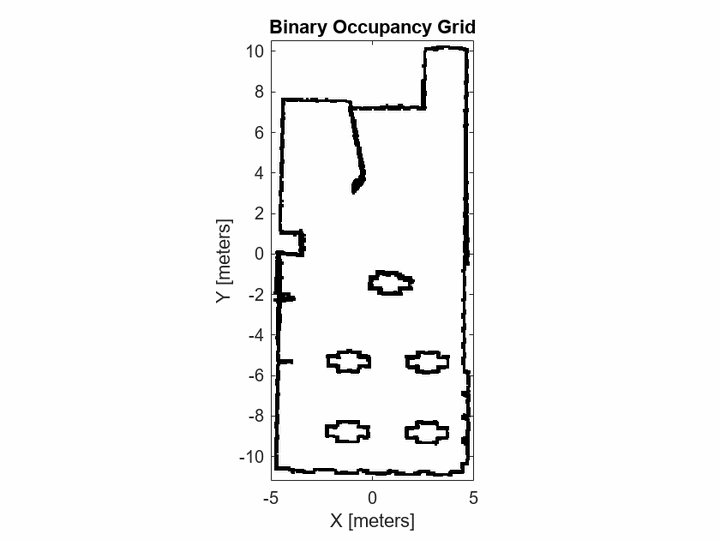Mapping and Navigation for a Robot Waiter
 Adaptive Monte Carlo Localization (AMCL)
Adaptive Monte Carlo Localization (AMCL)
Abstract — This project presents the mapping and navigation of a simulated robot waiter in a coffee shop environment. The main objective is to implement mapping and navigation algorithms using Probabilistic Roadmap (PRM) and Adaptive Monte Carlo Localization (AMCL). The Robot Operating System (ROS) and Gazebo simulation environment are utilized for its development. Using the TurtleBot3 robot equipped with a laser distance sensor and a camera module for simulation validation. The mapping process involves two methods: teleoperation and frontier-based exploration. The obtained maps are transformed into binary occupancy maps using MATLAB. A particle filter is applied to localize the robot’s initial position using sensor data and the map. For navigation, two approaches are explored: using the ROS2 Nav2 package for evaluation and implementing a PRM planner in MATLAB. The PRM planner connects the initial and target positions on the free configuration space by generating random configurations and validating collision-free paths. The results demonstrate successful mapping, localization, and navigation of the robot waiter in the coffee shop environment. The presented approach provides insights into the application of Monte Carlo Localization and Probabilistic Roadmap algorithms for mobile robotics.

Skills: Mobile Robotics · Robot Operating System (ROS) · ROS2 · Ubuntu · Gazebo · MATLAB